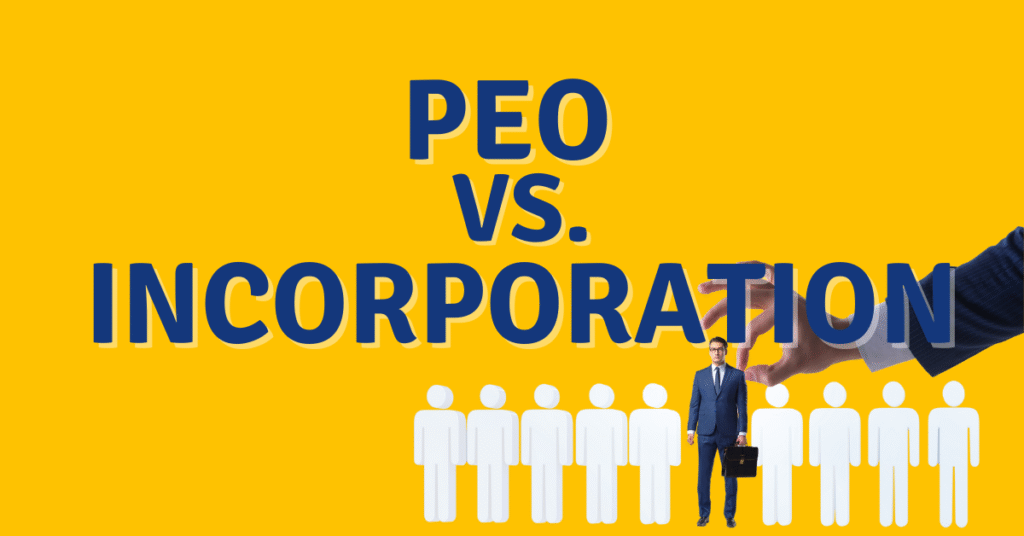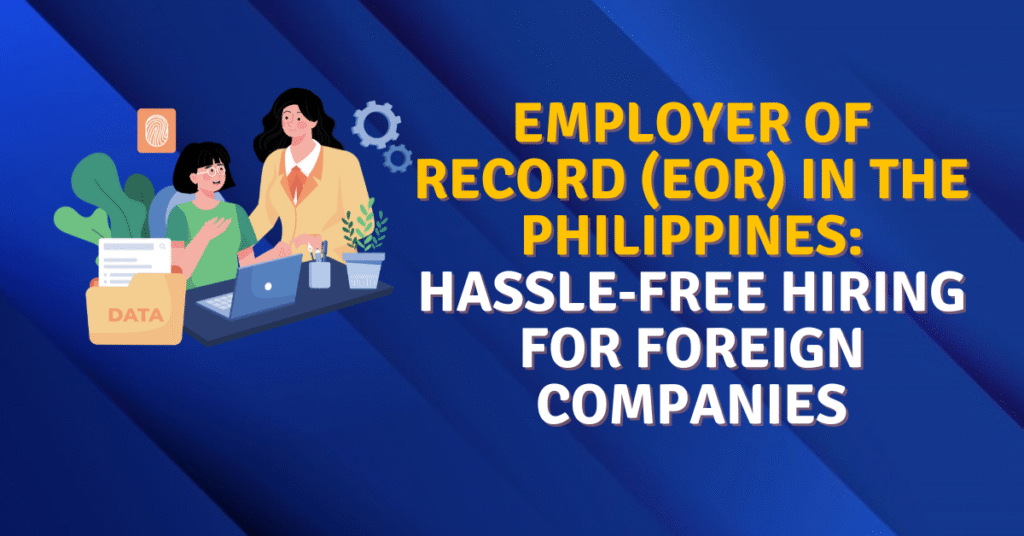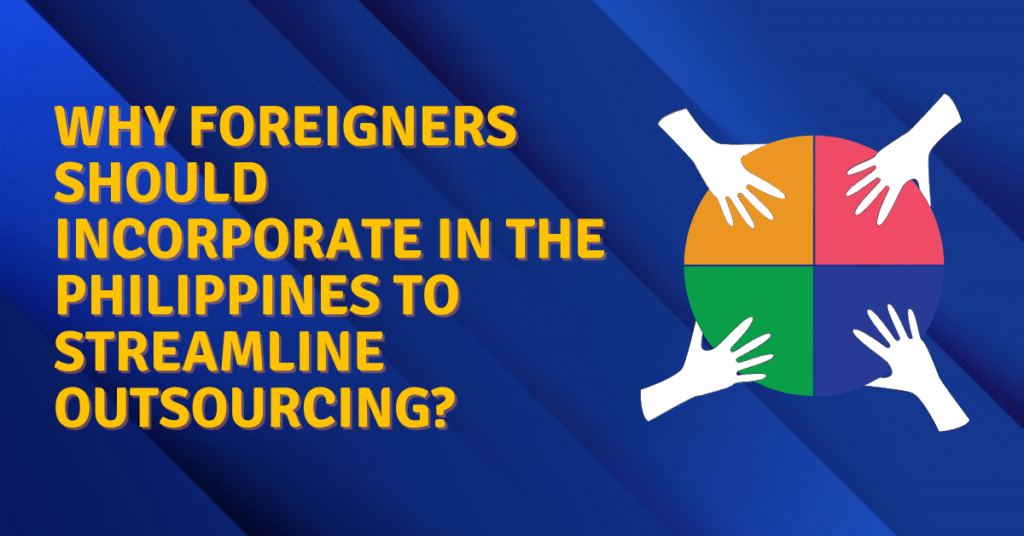Summary:
- Both a Professional Employer Organization (PEO) and incorporation allow you to hire legally in the Philippines.
- PEO is faster, cheaper, and ideal for small teams or market testing.
- Incorporation gives complete control and is better for long-term operations.
- Smartual Philippines helps you choose the proper setup—and can transition you from PEO to full incorporation when you’re ready.
Introduction
Foreign companies expanding into the Philippines face an important decision: should you incorporate a local entity or use a Professional Employer Organization (PEO) to hire staff? Each option has its own advantages, costs, and compliance implications.
Choosing the wrong option could lead to unnecessary expenses, delays, or even legal complications. In this comprehensive guide, Smartual Philippines breaks down the differences between PEO and incorporation, helping you determine which path fits your business goals, timeline, and budget.
What Is a Professional Employer Organization (PEO)?
A PEO is a local firm that hires employees on your behalf. It acts as the legal employer, while you manage the employee’s day-to-day work and performance.
In the Philippines, Smartual Philippines offers this as an Employer of Record (EOR) service—allowing foreign companies to hire Filipino talent legally without forming a corporation.
Key responsibilities of a PEO:
- Drafting compliant employment contracts
- Registering employees under SSS, PhilHealth, and Pag-IBIG
- Processing payroll and benefits
- Handling BIR withholding taxes
- Managing compliance with DOLE labor laws
Ideal for:
- Startups or foreign firms testing the Philippine market
- Companies hiring 1–20 employees
- Businesses that need speed and flexibility
What Is Incorporation?
Incorporation means setting up your own registered entity in the Philippines through the Securities and Exchange Commission (SEC) or the Department of Trade and Industry (DTI) for sole proprietors.
You’ll operate under your company name and become the direct employer of all staff. This option requires formal registration with the BIR, SSS, PhilHealth, Pag-IBIG, and the local government.
Ideal for:
- Businesses with long-term plans in the Philippines
- Companies hiring more than 20 employees
- Firms that need to issue local invoices or contracts
PEO vs. Incorporation: Quick Comparison
| Feature | PEO / EOR | Incorporation |
|---|---|---|
| Legal setup time | 1–2 weeks | 4–6 weeks |
| Cost | Lower | Higher (registration, permits) |
| Control | Moderate | Full |
| Legal employer | Smartual (on your behalf) | Your company |
| Compliance burden | Minimal | Full responsibility |
| Tax registration | None (handled by PEO) | Required (BIR, SEC, LGU) |
| Scalability | Easy to start, limited growth | Long-term and scalable |
| Ideal for | Pilot teams | Permanent operations |
Benefits of Using a PEO in the Philippines
- Speed – Start hiring in as fast as 5–10 days.
- Compliance – Avoid mistakes with Philippine labor and tax rules.
- Simplicity – One monthly invoice covers salary, benefits, and compliance.
- Flexibility – Scale your team up or down anytime.
- Low risk – No need for a legal entity or physical presence.
PEO is often the best entry route for businesses that want to test the market or hire quickly without red tape.
Benefits of Incorporation in the Philippines
- Full operational control – You decide structure, payroll, and HR policies.
- Local credibility – Having a Philippine entity improves your reputation with clients and banks.
- Tax efficiency – Registered companies can claim input VAT and deduct business expenses.
- Banking and contracts – Open local bank accounts, issue invoices, and sign leases.
- Long-term presence – Ideal for growing teams and physical offices.
When to Choose PEO vs. Incorporation
| Scenario | Recommended Option |
| Hiring 1–10 staff for remote support | PEO |
| Testing the Philippine market | PEO |
| Long-term operations or expansion | Incorporation |
| Planning to invoice local clients | Incorporation |
| Unsure of long-term plan | Start with PEO, then transition |
How Smartual Helps You Transition from PEO to Incorporation
Many of our clients start with Smartual’s PEO service and later decide to incorporate. Here’s how we make the transition seamless:
- Entity setup – Smartual handles SEC, BIR, and LGU registrations.
- Employee transfer – Staff are formally moved from Smartual’s payroll to your new entity.
- Tax registration – VAT/Percentage Tax setup and books of accounts registration.
- Continued support – Bookkeeping, payroll, and corporate secretarial services post-incorporation.
This “start small, scale safely” approach allows you to test your business model without commitment.
Legal and Compliance Considerations
Under a PEO:
- Smartual is the legal employer on record.
- All government contributions, taxes, and reports are filed under our entity.
- You manage operations; we handle compliance.
Under Incorporation:
- You become the employer.
- You must file your own tax and statutory returns.
- You’re responsible for DOLE compliance and annual reports.
Cost Overview
PEO Model
- Service fee: USD 125–299 per employee per month
- Employer contributions: ~10–15% of gross salary
- Setup: No upfront government fees
Incorporation
- Registration costs: PHP 50,000–150,000 (SEC, BIR, permits)
- Ongoing costs: accounting, tax filings, corporate secretary
- One-time process, but requires annual maintenance
Case Example: A US Marketing Firm
A U.S.-based marketing agency wanted to hire five Filipino content specialists. Unsure about long-term demand, they chose Smartual’s PEO model. Within two weeks, their team was onboarded, compliant, and receiving payslips.
After one year, their client base doubled. Smartual helped them incorporate a domestic corporation and transition employees under the new entity—without disruption.
This flexible setup saved them time, costs, and compliance headaches.
FAQs
Q: Can I switch from PEO to incorporation anytime?
Yes. Smartual assists with a smooth transition, including staff and compliance transfer.
Q: Is PEO legal in the Philippines?
Absolutely. Smartual is fully registered and compliant with local labor and tax laws.
Q: Can I combine both models?
Yes. Some clients run part of their team under PEO and part under their own entity.
Q: Does PEO cover benefits and holidays?
Yes. Smartual manages government-mandated benefits, 13th-month pay, and leaves.
Which Option Is Best for You?
If you’re still unsure, ask yourself:
- Do I need a quick, low-risk entry into the Philippine market? → Start with PEO.
- Am I ready for long-term investment and local operations? → Go for incorporation.
Smartual Philippines supports both paths. We’ll help you assess your goals, handle the paperwork, and manage compliance from start to finish.
Conclusion: Scale Smarter with Smartual
Whether you’re hiring your first Filipino employee or setting up a 50-person remote team, Smartual Philippines provides end-to-end solutions for compliant expansion.
Start lean with our PEO service—and when you’re ready, we’ll help you incorporate smoothly.
👉 Book a free strategy consultation today.




